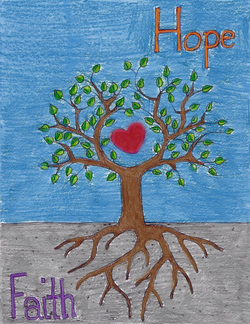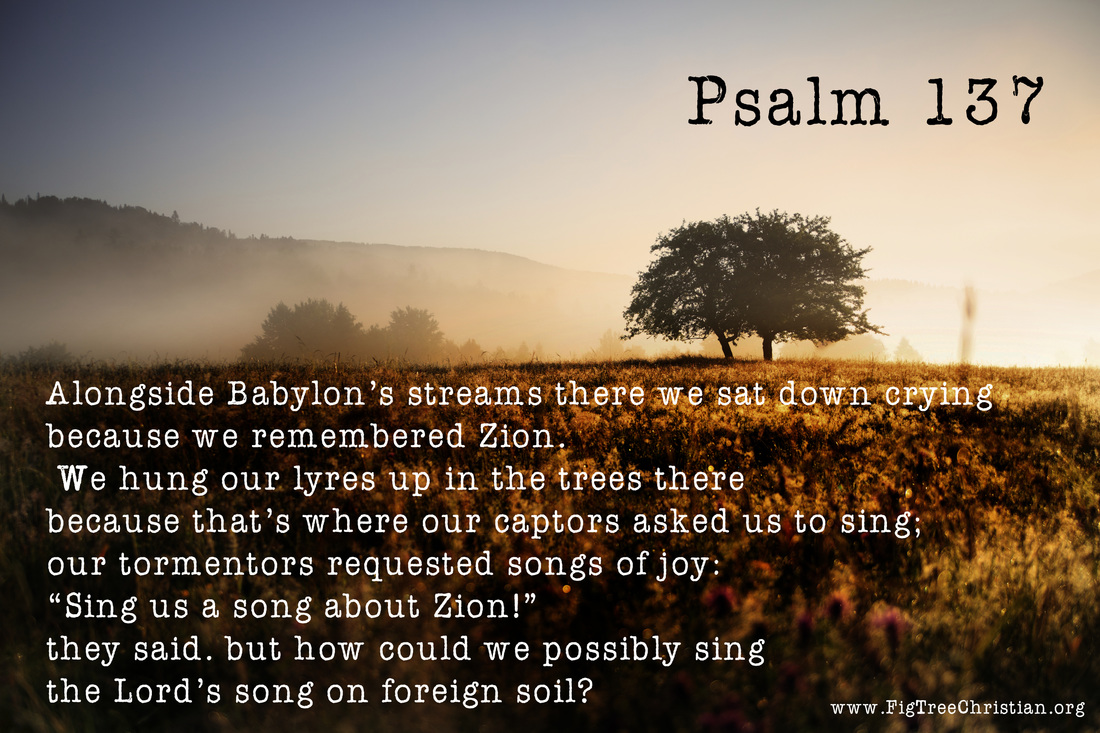Luke 21:25-36 CEB Hope A wonderful thing happens when you give up on hope, which is that you realize you never needed it in the first place. You realize that giving up on hope doesn't kill you, nor did it make you less effective. In fact it made you more effective, because you ceased relying on someone or something else to solve your problems — you ceased hoping your problems somehow get solved, through the magical assistance of God, the Great Mother, the Sierra Club, valiant tree-sitters, brave salmon, or even the Earth itself — and you just began doing what's necessary to solve your problems yourself. Derrick Jensen, in Endgame Volume I: The Problem of Civilization, p.332. But what is Hope? Nothing but the paint on the face of Existence. The least touch of truth rubs it off, and then we see what a hollow-cheeked harlot we have got hold of. Lord Byron, letter to Thomas Moore, 28 October 1815, in Byrons Letters and Journals (1975), Vol 4, ed. Leslie Marchand What is hope? Hope passes when there is no longer a future for it to live in. Hope is like a weed because when one loses hope in one area of life it springs up somewhere else. We may want for food, shelter, companionship, but we may always have an abundance of hope. Pastor Melissa Fain -------------------------------------------------------------------------------------------------------------------------------------- Our spirituality is rooted in faith. Our faith is grounded in the knowledge we have gained through experience and our understanding of history. Therefore, the bible is the best source we have to learn and grow in Christian faith because it is a collection of accounts of spiritual experiences with God. Love can spring up from our solid grounding in faith. Faith are the roots. Love is the tree. Love is what we can see; what we experience. Love lives in the now. The tree of love is a statement of our current relationship with the divine; with God. Symbolically, this tree is not an evergreen. The writer of Ecclesiastes has it right: there is a season for everything under heaven and earth. There is a season where the tree of love looks full and vibrant, and there is a season where the tree is bare. In both cases love is not gone nor absent. When the tree goes dormant it is because our actions have ceased to produce good fruit. Hope is the future of love. Past acts of love become the faith in which we are rooted and grounded. It is actualized hope that becomes the love which brings outward life to that tree. We tend to hope the most when the tree of love looks the most bare. God gives us this gift of hope because hope are the directions, the map to having a fruitful tree of love. Derrick Jenson and Lord Byron fail to see the purpose of hope. Hope lives in the future. You should not act out hope. As long as faith is rooted in the past, hope is mapped out in the future, and love is present in the now everything will be as it should. Yet people misplace their hope. Instead of acting in love they act in hope. Five-Hundred million dollar lottery anyone? Buying one of those lottery tickets was not acting in love, it was acting in hope. Hope should not be an action word and using it as one is as fruitful as thinking you can win the lottery. Yeah, it is possible, but incredibly, extremely and very believably unlikely. If you read the scripture up at the top of the page you will see that Jesus wants to talk about hope. Hold your heads up. There is something to hope for. Yeah, the tree looks dead, but life is within it. When you see the leaves start to grow on the fig tree you know summer is coming. In the same way there is a future, there is something to work towards and hope for. Yes, the future has anxiety and fear but among that fear and anxiety is hope. For us, during this Christmas season, that hope takes the form of a little baby who was born in a manger. Because this event already happened, we take it on faith. There was a time when people hoped for the coming of Jesus. Many were scared and fearful. Yet, God did not take the form of a judge to smite those who were not part of the fold. God took the form of a baby- innocent and helpless. Today we hope God will come to us in that innocence. Today we can only hope we will be more like the shepherds, staring in awe, and less like Herod, killing all the new babies to keep power. We hope so we can live in the love of God and produce good fruit.
-Rev Melissa Fain- Many ministers probably wouldn't say Psalm 137 is their favorite. I would go one step further and say most ministers wouldn't put this Psalm in their top ten list. It is uncomfortable. It is vengeful. It is because of both of these reasons I am drawn to look at it with closer inspection. Yeah, I could focus on Psalm 23 where God is our Divine Shepherd. I could joyously celebrate with a Psalm 94 or 100. Maybe in the future I will. Today is a day of reflection and acceptance. Reflection because difficult passages cannot be understood and embraced without introspection and a clear head. Acceptance because even in this difficult Psalm there is room to accept what the Psalmist is trying to say. The difficulty flows throughout this Psalm but the most difficult part happens at the end: "A blessing on the one who seizes your children and smashes them against the rock!" Yeah, it's in the bible. Like I said before, it is not comfortable and it is extremely vengeful. Could God allow such language? Do we have space in our understanding of God to live in this Psalm and believe it? I think the answer is yes, and here is why: God gives us space to work through our emotions. Don't take that sentence lightly. There are quiet a few theologies out there that don't believe it. There are ministers that will openly and easily preach about sin coming from thought. There are people who will suggest a person must think pure thoughts all the time. Thinking pure thoughts all the time is difficult when one is dealing with loss. You do not have to be a psychiatrist or a therapist to know there are stages to grief. Denial- anger- bargaining- depression- acceptance. No matter who you are or what your loss is, these stages happen in this order. They all hit people differently and the timing is different for each person, but this is the order. Acceptance can only happen once a person has dealt with the denial, anger, bargaining, and depression. Psalm 137 is a Psalm about the Israelite people dealing with the anger of loss. God doesn't want the Babylonian babies to be killed. That is not what this Psalm is about. The Israelites are not punished for wishing such harsh treatment on the people of Babylon. Instead, we see the people are allowed to speak and work through their emotions. In my mind, that transforms this Psalm from disturbing to sadly beautiful. Psalm 137 remains in the book to remind us God is not after perfect thought, but thought that leads our fragmented selves to wholeness. We are given space to go through the stages of grief to reach acceptance, and ultimately wholeness. This meditation was first written on 11/13/2012. It was updated and republished on 8/11/2016.
Wanna connect with others? Join Fig Tree on: Facebook (We live cast the event every Saturday at 2pm EST, for those who wish to participate. Come to the actual event the first Saturday of the month at FCC Marietta.) Our Subreddit Ruth 3:1-5; 4:13-17 http://www.biblegateway.com/passage/?search=Ruth%203:1-5;%204:13-17&version=CEB Naomi her mother-in-law said to her, “My daughter, shouldn’t I seek security for you, so that things might go well for you? Now isn’t Boaz, whose young women you were with, our relative? Tonight he will be winnowing barley at the threshing floor. You should bathe, put on some perfume, wear nice clothes, and then go down to the threshing floor. Don’t make yourself known to the man until he has finished eating and drinking. When he lies down, notice the place where he is lying. Then go, uncover his feet, and lie down. And he will tell you what to do.” So Boaz took Ruth, and she became his wife. He was intimate with her, the Lord let her become pregnant, and she gave birth to a son. The women said to Naomi, “May the Lord be blessed, who today hasn’t left you without a redeemer. May his name be proclaimed in Israel. He will restore your life and sustain you in your old age. Your daughter-in-law who loves you has given birth to him. She’s better for you than seven sons.” Naomi took the child and held him to her breast, and she became his guardian. The neighborhood women gave him a name, saying, “A son has been born to Naomi.” They called his name Obed. He became Jesse’s father and David’s grandfather. I love the book of Ruth for multiple reasons:
All cultures have innuendos regarding sexual relation. Here are a few from American culture:
"Would you like to come in for coffee?" "She's been deflowered." "He's been around the block." The Israelites had innuendos as well. To "uncover his feet" is a sexual innuendo. Naomi was telling Ruth to make herself pretty so she could get in bed and sleep with Boaz. When I first learned the truth about Ruth and Boaz it felt like my grandma just told me something lewd about her childhood. At first it made me think: Yeah, it happened but I didn't really need to know it happened. After I got over the shock I had a second thought: Hey, this thing is real. I cling to the earthly in the bible because the earthly brings it home. These are not perfect people acting out in perfect ways. These are real people making real choices. These are people like us. Ruth and I are daughters of Eve. We were created by divine hands but feel drawn to the chaos. We are all sons and daughters of God's created order. We all struggle with our need to go towards the chaos while pushing towards God. I ultimately have comfort in these little biblical snip-its because they breath life into the bible. It lets me know I am not struggling in vain. God's plan can come to pass even with the waves of chaos upon us. I love the book of Ruth because it is saucy. I love that it is saucy because saucy is real and we can relate to it. |
Categories
All
Archives
October 2023
|




 RSS Feed
RSS Feed